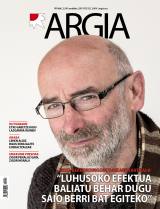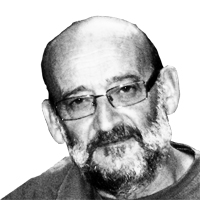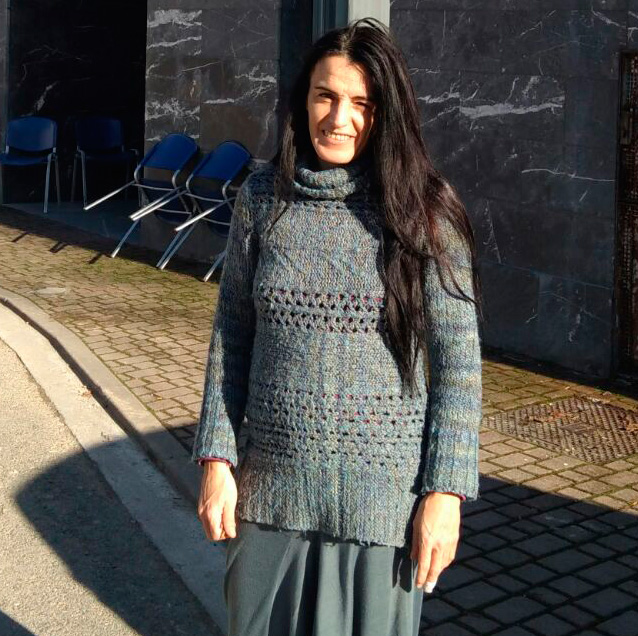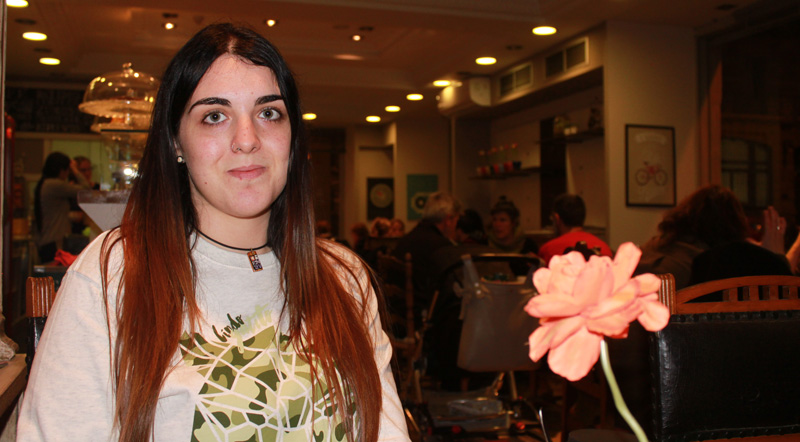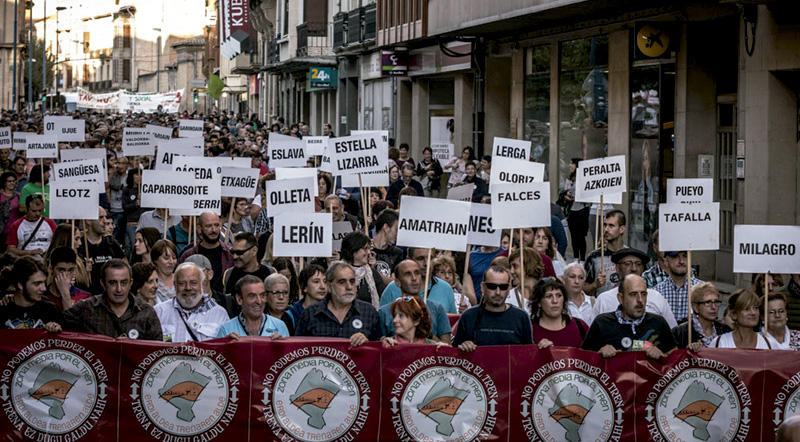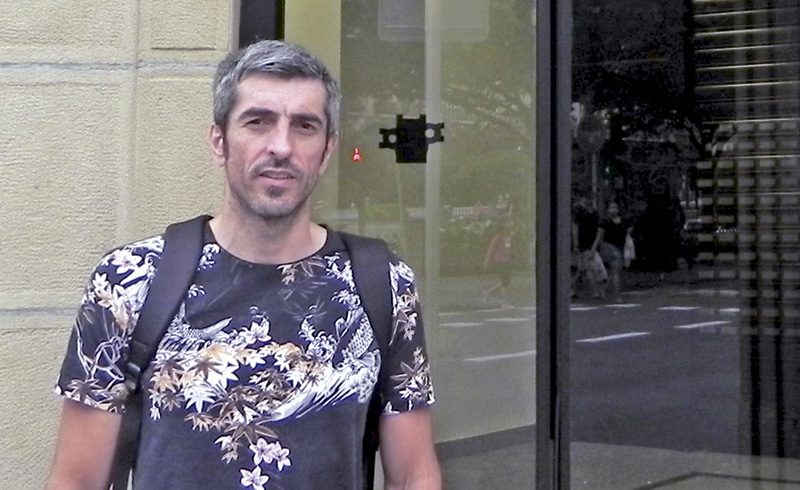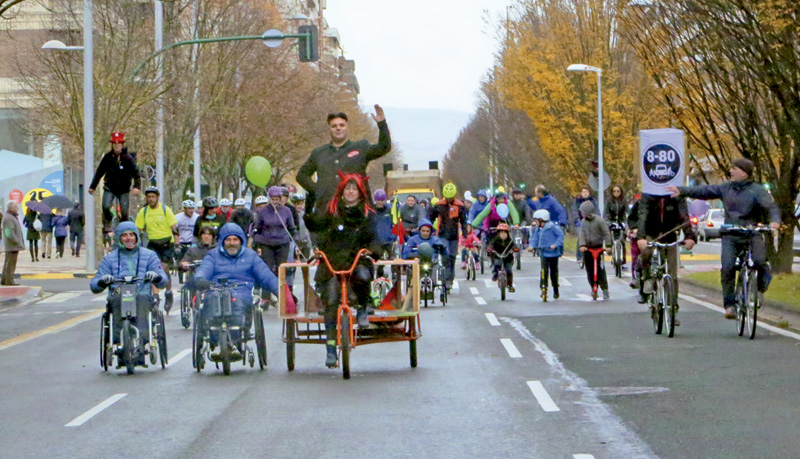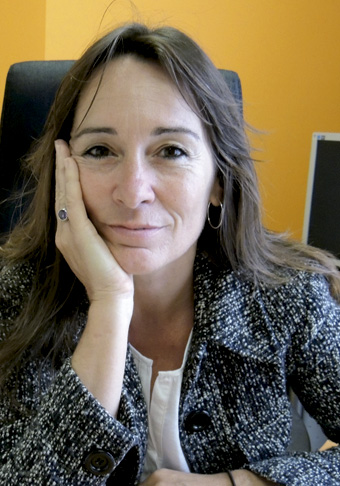"We are obliged to organize life very well; it is difficult to live the present"
- I'm Sofia from Esteban Lizarbe, a 44-year-old Pamplona. I work as coordinator of ASORNA, Association of Deaf People of Navarra. I am deaf at birth, but not as many deaf people think.
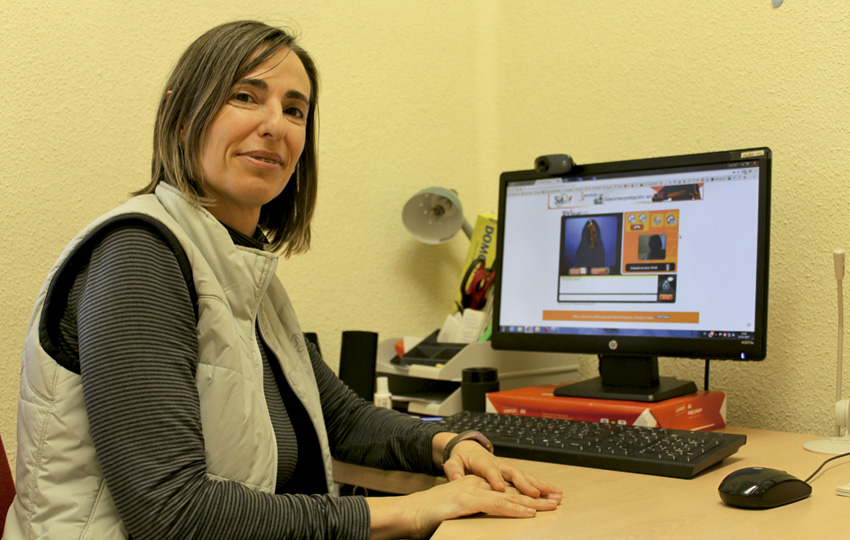
Our community is very plural, we have different levels of hearing loss and skills for oral communication. The concept of the deaf-mute is deeply rooted, but society should stop using that name. Because it's putting everyone in the same bag and because it holds back those who are able to use their voices a lack that they don't have.
We are a community, we have our language, our culture and our customs. Most of my friends are deaf, like my partner. We have two children and they don't have hearing problems, but home language is a sign, because it's their mother tongue. However, we do not use them as our interpreters. My husband and I are autonomous people and we don't want our children's lives to fit our needs.
I've been teaching sign language for several years. The only difference with other languages is that it's the channel, which instead of sound is visual. Moreover, it is like all languages, it has its own characteristics, lexical, grammatical norms... even dialects! It doesn't speak the same way here, and in Huelva, it has contextual characteristics, it's a living language.
In recent years, I have been fighting for our rights. General support or assistance to deaf people and families and in awareness-raising and dissemination activities abroad.
We are being violated many rights. The Government of Spain approved Law 27/2007, which recognizes the languages of Spanish and Catalan signs – does not include the language of Basque signs – but only the basic is fulfilled, far from our needs.
It is true that thanks to new technologies, steps have been taken forward. Most of us have the house adapted and the doorbell or alarm clock, for example, is light. The SVisual platform is also very useful to us, as it offers 24-hour interpreter service over the Internet.
In everyday life, I always try to walk with the same interpreter, because it creates a relationship of trust and I know that it will express what I want well, and vice versa. Their work is essential in our lives. I manage them without help to do minor things, but to go to the emergency room, specialists, lawyers or meetings, I ask for a service.
There is information, but little knowledge. We are invisible. At first glance we are not aware of anything and the reactions are generalist. There are people trying to hold a conversation and we adapt to it, but many others don't know how to behave and leave saying, "Oh, forgive." It can be hard, especially if you're not empowered.
We are also very limited in the area of training, leisure and culture, because the supply is low. We have to explicitly plan something to see, to ask for an interpreter.
There has been a tendency to promote the oral language; ours has not been seen as a complement or as a resource; therefore, in addition to not promoting it, it has often been undervalued. Hearing aids, implants or speech therapists are preferred, and to us these tools seem very useful. But without demeaning the other.
Delacroix shows the chart La Liberté guidant le peuple (Freedom, guide for the people) at the entrance of human rights, in the Basque Wikipedia. The romantic image of the painter is well provided, I believe that human rights are intimately linked to freedom. I believe, however,... [+]
Irati Egaña leioarrak 19 urte ditu eta itsua da. Psikologia karreran azterketa bat egokitzeko eskatu eta irakasleak esan dio ezin duela azterketa ONCEra bidali egokitzeko, hori egitea delitua dela. “Zur eta lur geratu nintzen”, kontatu digu. Ez da ikasle gisa... [+]









